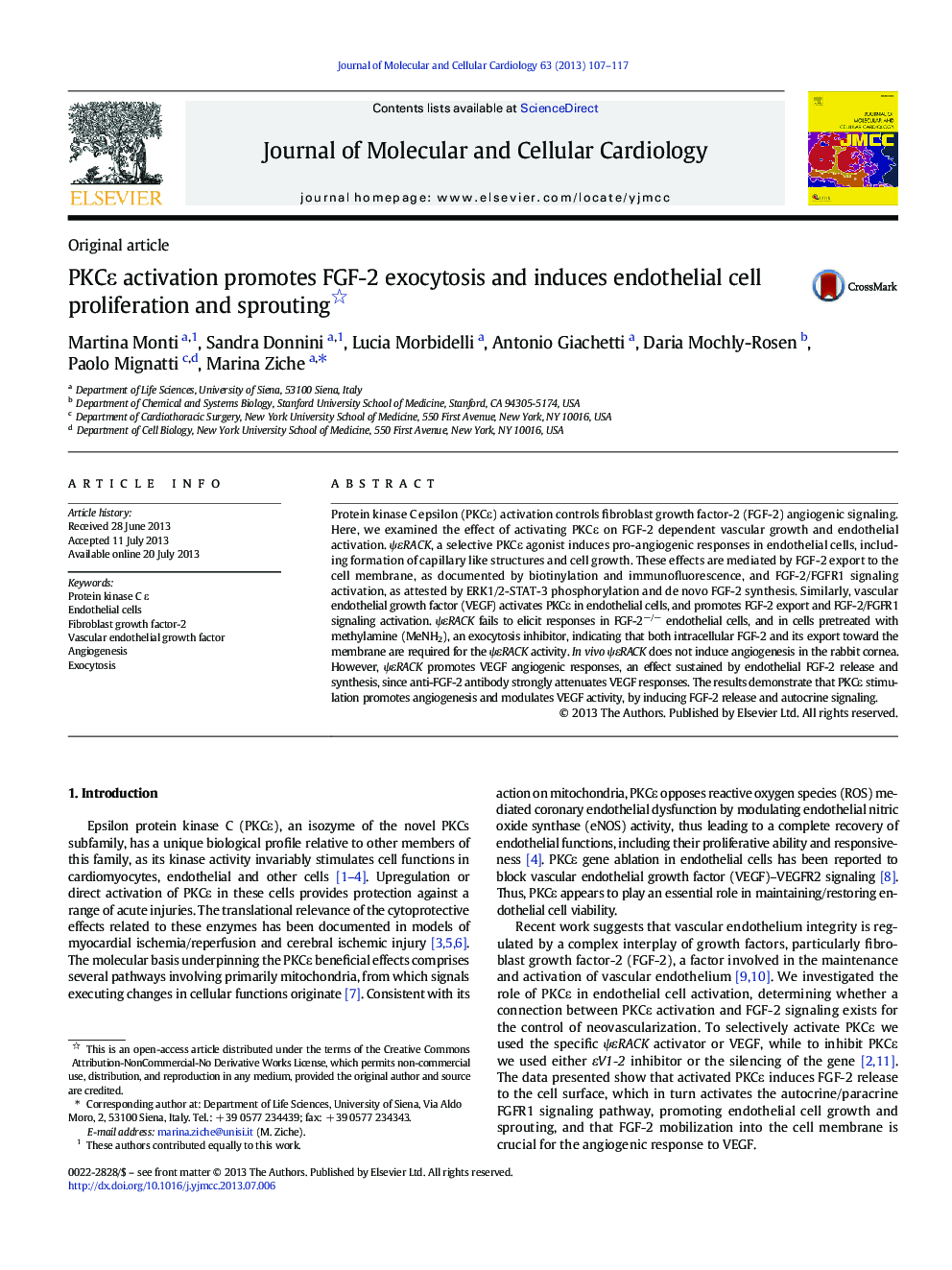| Article ID | Journal | Published Year | Pages | File Type |
|---|---|---|---|---|
| 8475051 | Journal of Molecular and Cellular Cardiology | 2013 | 11 Pages |
Abstract
Protein kinase C epsilon (PKCε) activation controls fibroblast growth factor-2 (FGF-2) angiogenic signaling. Here, we examined the effect of activating PKCε on FGF-2 dependent vascular growth and endothelial activation. ÏεRACK, a selective PKCε agonist induces pro-angiogenic responses in endothelial cells, including formation of capillary like structures and cell growth. These effects are mediated by FGF-2 export to the cell membrane, as documented by biotinylation and immunofluorescence, and FGF-2/FGFR1 signaling activation, as attested by ERK1/2-STAT-3 phosphorylation and de novo FGF-2 synthesis. Similarly, vascular endothelial growth factor (VEGF) activates PKCε in endothelial cells, and promotes FGF-2 export and FGF-2/FGFR1 signaling activation. ÏεRACK fails to elicit responses in FGF-2â/â endothelial cells, and in cells pretreated with methylamine (MeNH2), an exocytosis inhibitor, indicating that both intracellular FGF-2 and its export toward the membrane are required for the ÏεRACK activity. In vivo ÏεRACK does not induce angiogenesis in the rabbit cornea. However, ÏεRACK promotes VEGF angiogenic responses, an effect sustained by endothelial FGF-2 release and synthesis, since anti-FGF-2 antibody strongly attenuates VEGF responses. The results demonstrate that PKCε stimulation promotes angiogenesis and modulates VEGF activity, by inducing FGF-2 release and autocrine signaling.
Keywords
Related Topics
Life Sciences
Biochemistry, Genetics and Molecular Biology
Cell Biology
Authors
Martina Monti, Sandra Donnini, Lucia Morbidelli, Antonio Giachetti, Daria Mochly-Rosen, Paolo Mignatti, Marina Ziche,
